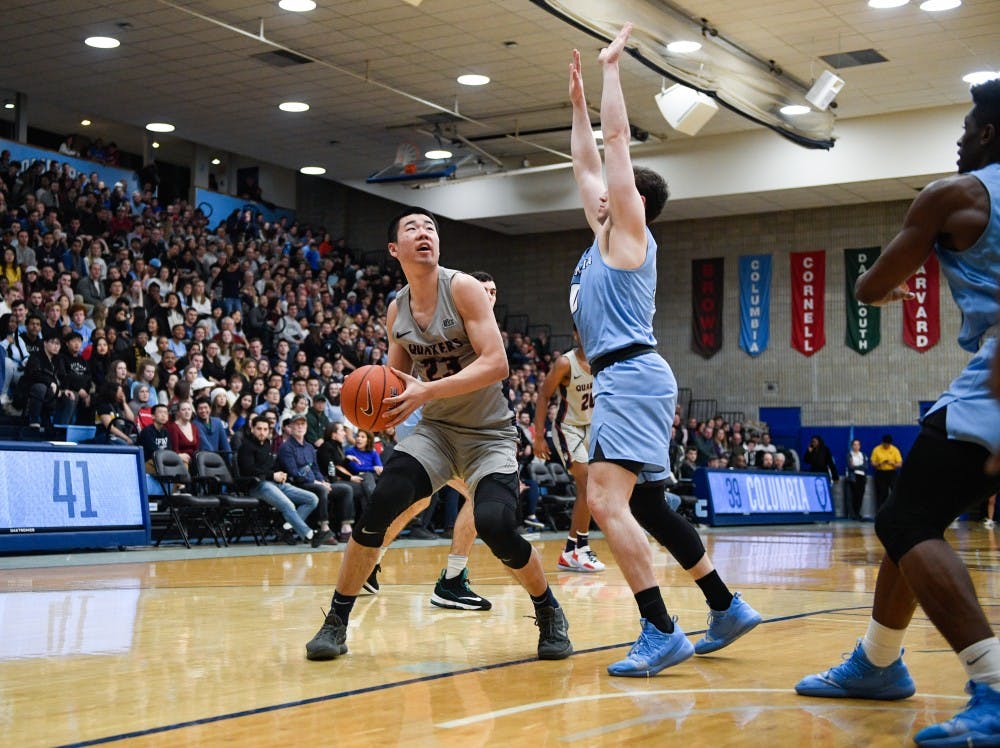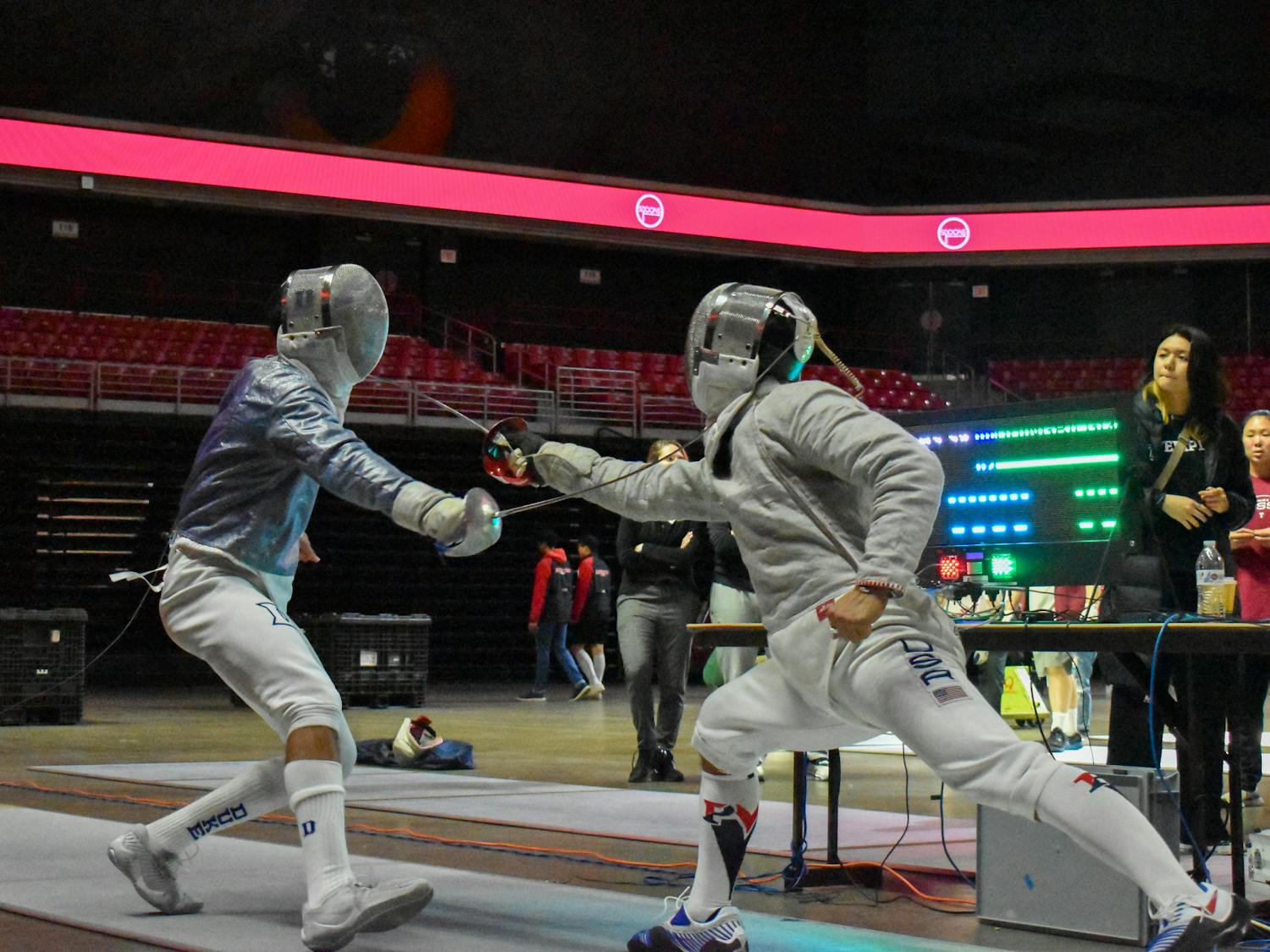For most international students at Penn, summer brings a long-awaited opportunity to travel home and reconnect with family and friends. For fewer, returning home means resuming a position on a senior national team.
Michael Wang might just be the only one.
Fresh off a freshman year where he was a three-time Rookie of the Week — averaging 8.5 points across 26 games — Wang returned home this summer to China to train on the national circuit for the second year in a row.
Before his freshman year at Penn, Wang led the U18 Chinese team to a third-place Continental Tournament finish in Thailand, where he averaged 20 points and 13 rebounds per game. The competition last year, however, was more limited as the team played only Asian teams.
This summer, the Chinese team returned to the FIBA U19 Global Cup after failing to qualify in Cairo in 2017. In Heraklion, Greece, the team faced off against a tough group of teams from around the world, ultimately placing 16th after falling to Senegal in the team's final game. Wang only played in three of China's seven matches, totaling 20 minutes of time on the court.
Wang’s basketball career has coincided with a huge growth in the popularity of basketball in China. Despite moving to California when he was 14 to attend basketball powerhouse Mater Dei, Wang still has a sizable following at home. The growing base of Chinese basketball fans has a reach that extends to following players who have come to the United States to play. In fact, ESPN+ began streaming Penn games with Mandarin commentary in February.
Wang is one of many Chinese players making an impact on the American stage. Last year, James Zhao became the NCAA’s first male player to come from a Chinese high school, competing for California. Unsurprisingly, the two countries have distinct styles of play.
“We play different types of games,” Wang said. “Whatever coach [Donahue] needs me to do here, I do.”
RELATED:
Guest column by Jacob Cohen | Penn men's basketball should have more home games
Penn men's basketball releases home schedule for 2019-20 season
At 6-foot-10, Wang is easily one of the tallest Quakers. This provides for an interesting transition when he comes back to Penn after playing alongside a number of Chinese teammates who monopolize the paint, reaching well above seven feet.
“On the Chinese national team, I was playing more outside. Here it’s different because we don’t have that many big guys, so I’ll play more inside the paint,” Wang said.
This flexibility in his game has made Wang a promising contributor on the court. Even with a knee injury that forced him to miss five games in the middle of the season, Wang made a significant impact in his first season with the Quakers. In December, he had a four-game stretch in which he averaged 18.5 points and 5.5 rebounds.
With another summer of basketball under his belt, Wang will look to be a consistent contributor for the Quakers next season.









